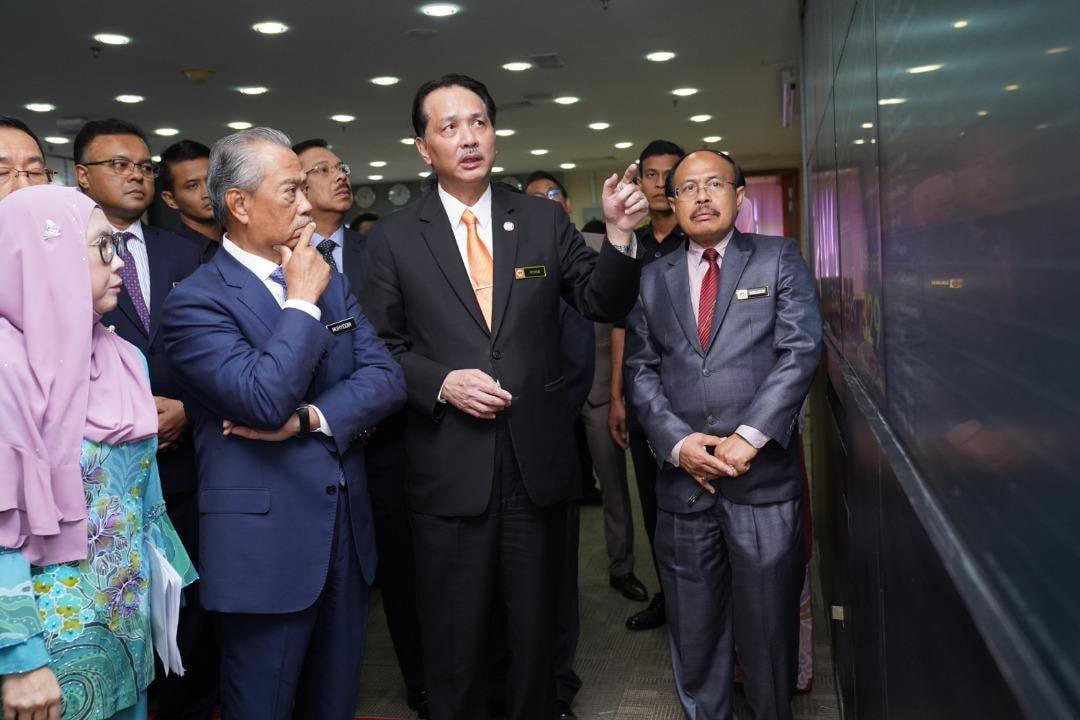KUALA LUMPUR, Jan 11 — Lawmakers across the aisle have criticised the federal government’s handling of the Covid-19 epidemic and called for new leadership of the public health response, as a surge of cases exceeds bed capacity.
The Ministry of Health (MOH) yesterday reported 27,332 active Covid-19 cases. It is unknown what is the latest bed capacity across Covid-19 hospitals and low-risk quarantine and treatment centres (PKRC). Health director-general Dr Noor Hisham Abdullah, who leads the Covid-19 public health response, previously said on January 4 that the current capacity was 23,000 beds.
If Covid-19 bed capacity remains at 23,000 beds, that means more than 4,000 positive Covid-19 patients are being isolated at home. It is unclear if MOH keeps track of home quarantine cases and their households, as the ministry is already struggling to keep up with testing, contact tracing, and quarantine.
It is also unclear what is the proportion of asymptomatic and mild Covid-19 patients occupying hospital beds, as experts say that such Stage 1 and 2 cases can be shifted out to reserve beds for the sick who need medical attention and treatment.
Bukit Mertajam MP Steven Sim said Covid-19 prevention and management strategies should be decentralised and that state and local governments must be empowered with resources and devolution of power.
He pointed out that the Penang state government recently reached an agreement with the Penang Medical Practitioners Society to have 100 private clinics in the state provide free Covid-19 vaccination services.
“Business as usual obviously did not work and will not work, the government needs more heads at the table, and definitely, more hands on the deck,” Sim said.
The DAP lawmaker also called for a bipartisan high level command council, with representatives from the opposition, epidemiologists, as well as experts and stakeholders from various sectors.
MOH has reported more than 2,000 new coronavirus infections daily for six consecutive days since January 5. According to the US-based Johns Hopkins University’s Coronavirus Resource Center, Malaysia’s daily Covid-19 test positivity rate (seven-day moving average) is 8.27 per cent, higher than the World Health Organization’s (WHO) recommended 5 per cent.
This means that Malaysia is not testing enough as only the sickest patients who seek medical attention are detected, while people without symptoms are missed.
Former ministers and deputy ministers of the health and science portfolios — Dzulkefly Ahmad, Dr Lee Boon Chye, Yeo Bee Yin, Isnaraissah Munirah Majilis — have called for mass testing and wider utilisation of cheaper rapid antigen tests with faster turnaround times.
“Indeed, as we do more testing, the number of positive cases will increase temporarily. But this is no time to hide our head in the sand. We must face it head on, find all the positive cases in the community then isolate them!”
They also demanded a complete overhaul of the contact tracing system, urging the federal government to use big data analytics by combining data from the MySejahtera contact tracing app with other public data, like social media posts with meta-data and tags.
Bintulu MP Tiong King Sing pointed out that Sarawak’s State Disaster Management Committee (SDMC) quickly arranged for widespread road blockades to restrict the movements of residents of eight longhouses affected by the Pasai cluster in Pasai Siong, Sibu, after 37 Covid-19 cases were confirmed in the cluster. The Pasai cluster currently has 43 confirmed cases.
He added that with the Mador cluster, SDMC immediately closed off Maradong district and stopped people from entering or exiting Bintangor.
“The MOH and Health Department give an impression of being directionless in preventing more outbreaks, with no coherent strategy or specific policies,” said Tiong.
“The Sarawak government must continue to exercise its autonomy in preventing more cases. It does not need to fully adhere to the federal government’s policies in this matter. It only needs to firmly implement decisive methods and measures with speed to protect Sarawakians.”
Iskandar Puteri MP Lim Kit Siang and Dr Mohamad Rafick Khan, in a joint statement yesterday, noted that the federal MOH has claimed full leadership over Malaysia’s Covid-19 public health strategy.
“It is reported that the country’s health system is almost paralysed. The fact is that this paralysis is caused by a weak strategy, less dynamic and more towards a reactive response to the problems that arise,” they wrote.
“This war requires the involvement of all citizens, various government agencies, all state governments and political parties in the country. We therefore call on the government to take an open and inclusive attitude and include all stakeholders in the country regardless of political background, as well as experts in the field of strategy and science.
“Citizens can help if the government displays the exact location of active cases on websites where they can control their movements on their own.”
A group of 46 health experts previously called for a Covid-19 Task Force comprising subject matter experts to make regular recommendations to the Cabinet, as they stressed a bipartisan approach in managing the epidemic.








